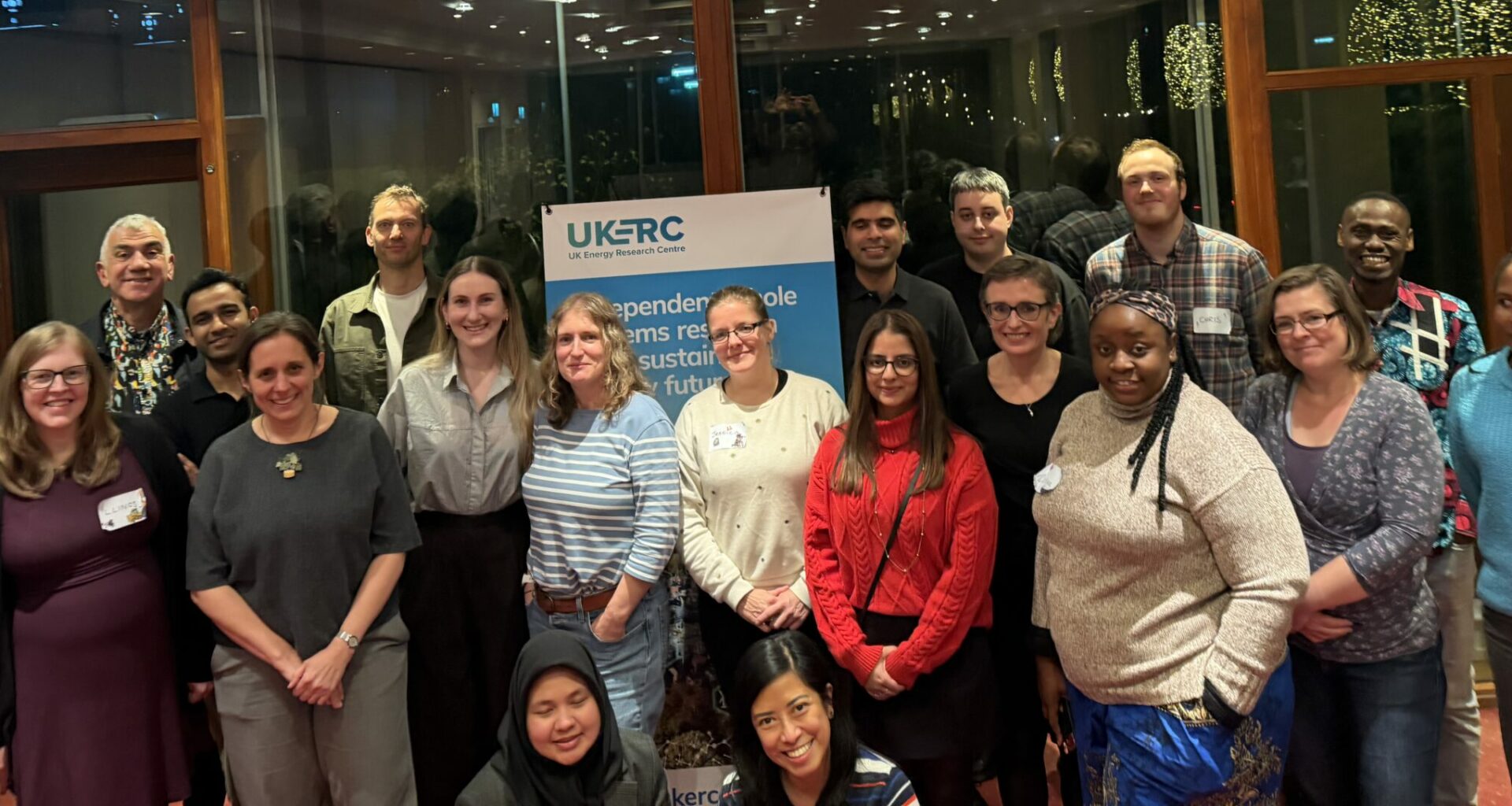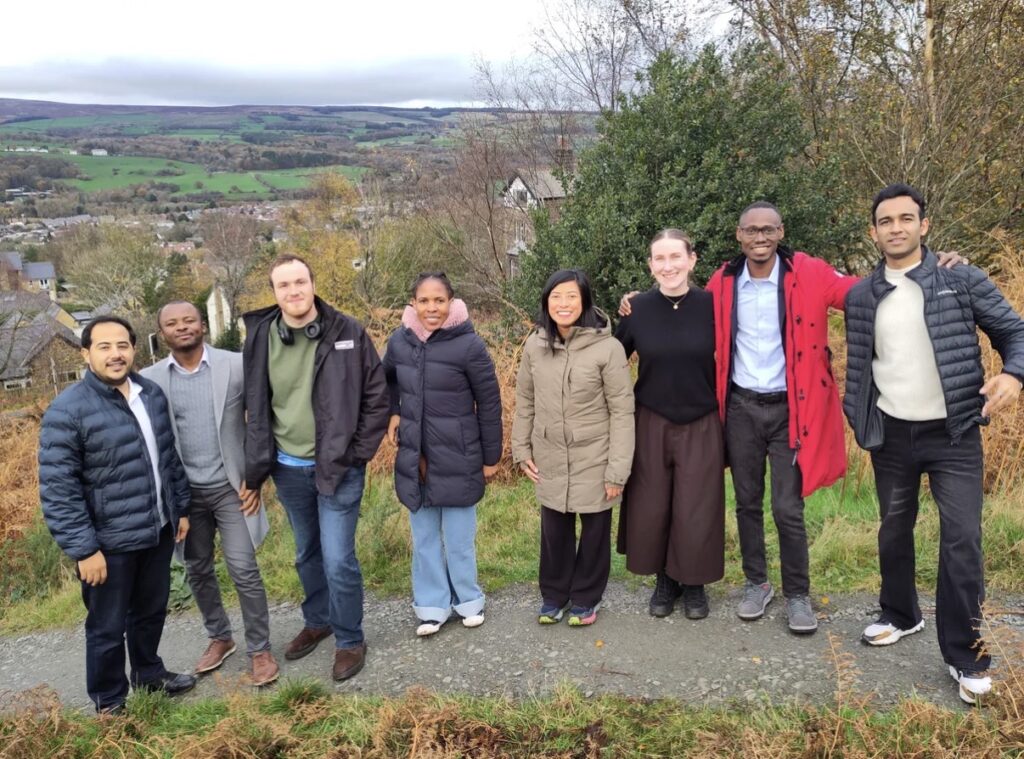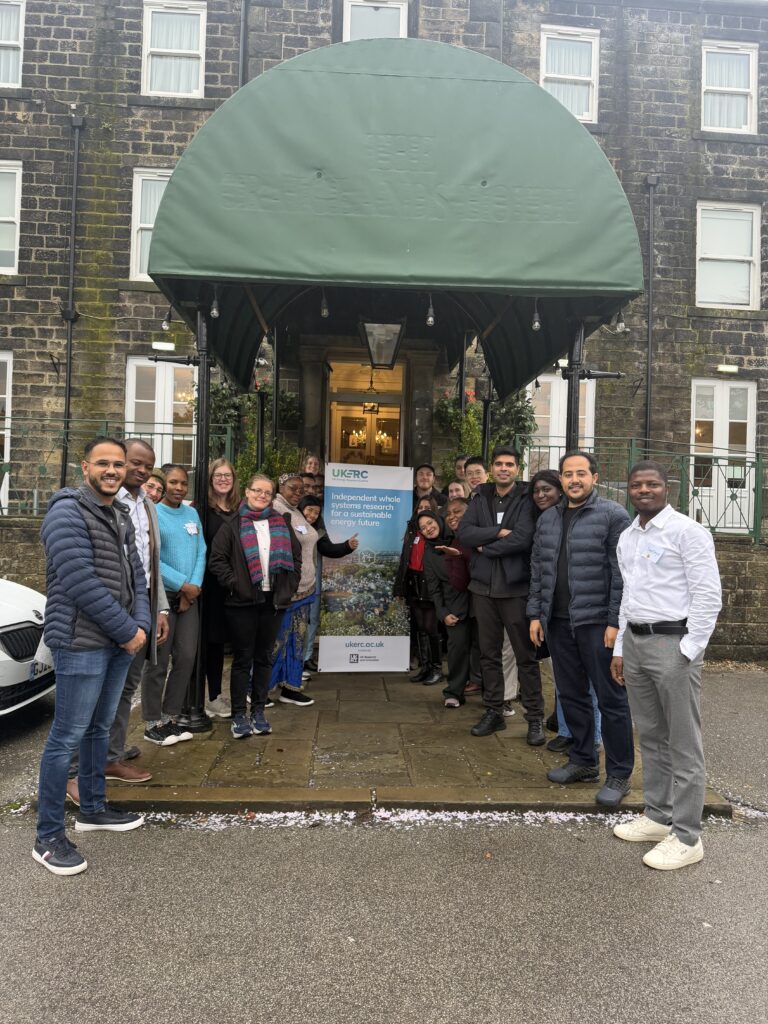
Earlier this month, UKERC researchers gathered for a two-day Inclusive Writing Retreat, designed to help participants strengthen their writing practice, connect with others, and explore what it means to communicate research inclusively.
The retreat opened with introductions and goal setting, as participants reflected on their writing habits and what they hoped to achieve from the focused sessions ahead.
The first talk was delivered by Fabio Pulizzi, a Publisher at Nature Water, who shared practical guidance on how to write effectively for publication. His talk unpacked questions many researchers face, such as how technical an article should be and what to consider when deciding on authorship. Fabio emphasised that clarity, structure, and purpose are at the heart of good research writing, regardless of the journal or audience.

Throughout the retreat, participants took part in dedicated writing sessions – short, structured slots designed to encourage focus and reflection. During the morning sessions, facilitator Christine Bell encouraged participants to contribute writing tips to the Energy Writers Community, creating a shared bank of resources. Some reflections from these sessions included:
“Manage your energy, not just your time.”
“Make space to be reflective – writing is as much about thinking as typing.”
In the afternoon, Professor Lucie Middlemiss (University of Leeds) hosted a fireside chat on the topic of ‘writing for research’. She described the process of writing her book as “liberating”, a creative act that invited others into her world of ideas. Lucie spoke candidly about overcoming writing blocks through collaboration, sharing how group writing sessions with colleagues fostered both productivity and friendship.Her call to action resonated across the room:
“Banish the imposter, invite others into your journey, and push the boundaries – academic writing doesn’t have to be boring.”
The conversation also touched on how researchers can strengthen their individual voice, particularly when writing for broader platforms like LinkedIn, blogs, or policy briefs.

The retreat concluded with a session led by Rosa Foster, from the Yorkshire and Humber Climate Commission, who shared her experience translating technical research into messages that resonate with policymakers and the public. Rosa reflected on the balance between rigour and accessibility, encouraging researchers to think about the impact of their words beyond academia.
The retreat closed with group reflections, where participants shared lessons, challenges, and renewed motivation to keep writing. Themes that emerged included the value of peer accountability, the importance of carving out time to write, and the need for spaces that nurture creativity within research environments.
As one participant put it:
“Inclusive writing isn’t just about who reads our work – it’s about how we show up on the page, and whose perspectives we make room for.”
The Inclusive Writing Retreat 2025 offered more than time to write; it offered space to reconnect with purpose as writers, researchers, and communicators of change.